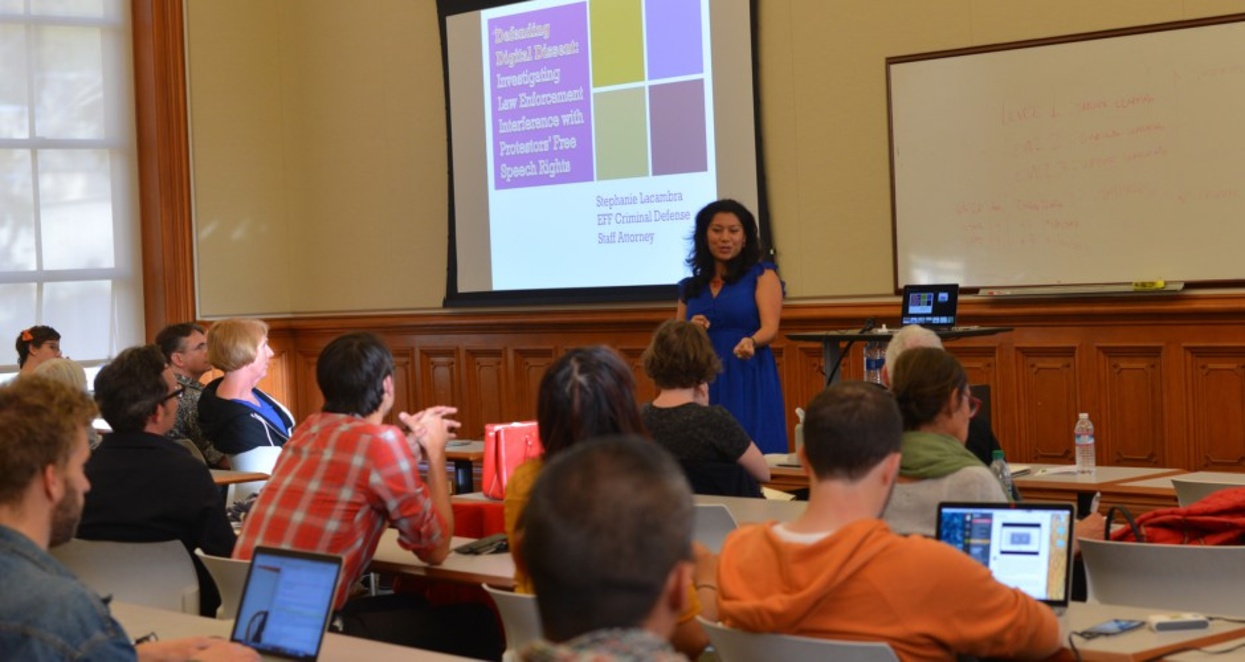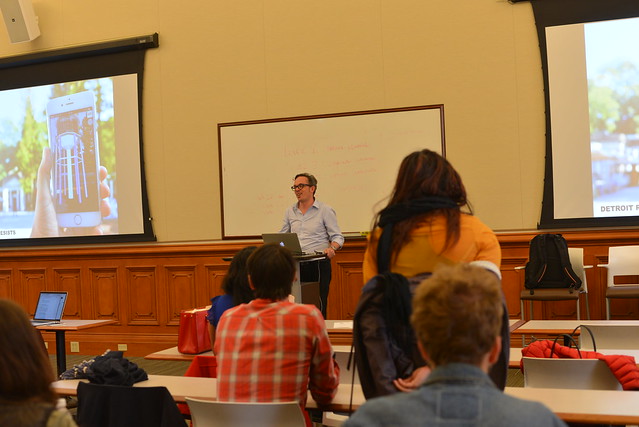Revisited: "Digital Dissent"

We were pleased to host Digital Dissent in partnership with the School of Information and the Graduate School of Journalism at UC Berkeley on April 25, 2017. With a host of amazing speakers, Digital Dissent unpacked some of the new technologies changing the way we enact dissent, and some of the digital technologies compromising our activism.
Sara Dean and Andrew Herscher introduced Detroit Resists, an organization that formed in response to the American Pavilion’s representation of an ideal imaginary of Detroit Architecture at the Venice Biennale. Members, who had been working on water access and evictions in Detroit, took issue with how these architects, who had no connection to the city, imagined their landscape and ignored the real issues on the ground. Detroit Resists created an augmented reality interface, as a result, to virtually “occupy” the American Pavilion and offer another narrative of the architecture of their city, drawing attention to real concerns over economic inequality and gentrification.
Veda Hlubinka-Cook presented a nascent project on investigative journalism that will allow journalists to collaborate on large stories, as has recently become more common in the age of data-dumps. Journalists will be able to use this tool to push out their work with links that can be verified and grounded in data.
Stephanie Lacambra from the Electronic Frontier Foundation described the organization’s work in Standing Rock, where they have investigated possible government interference or unlawful spying on protestor’s phones and media through simulated cell signals, and at the DC marches earlier this year, where they’ve been arguing against police seizure of journalist’s, medic’s, and innocent bystander’s phones. In particular, Stephanie pointed out two tools that would help in their work: a way of recognizing if a cell signal is counterfeit and who is responsible for this network.
Finally, Beezer de Martelly, Julia Havard, Lisa Hofmann-Kuroda, and Juliet Kunkel presented the Anti-Milo Toolkit, which they helped co-author in response to Milo Yiannopoulos’ February 2017 speaking engagement at Cal. The authors shared their experiences with administration and the impetus for their work on the toolkit, which leveraged their own experiences as educators to offer lesson plans, dialogues, and histories to assist those who sought to protest Yiannopoulos’ visit. The authors argued that free speech should no longer be considered a inviolable right, and should remain a principle secondary to issues of safety and power.
We thank our wonderful speakers for joining us on April 25th and look forward to continuing this conversation on how new media is shaping our current landscape in the future.

